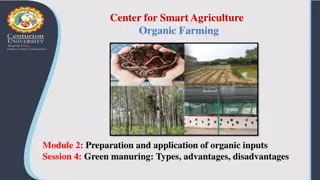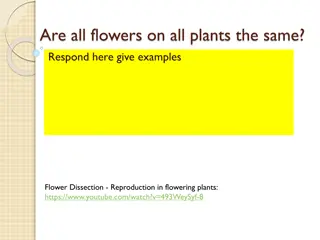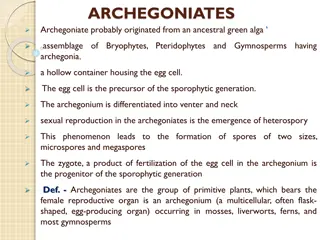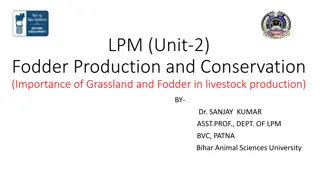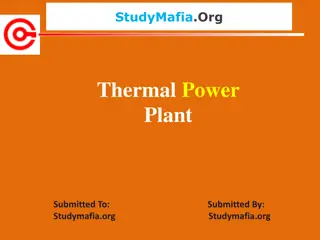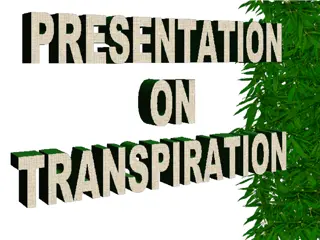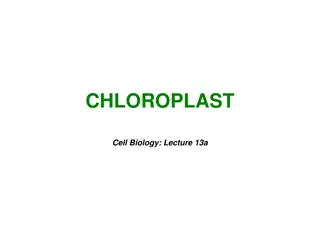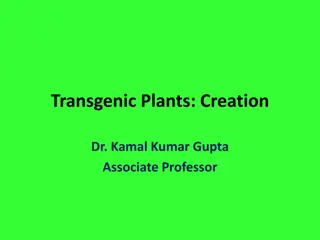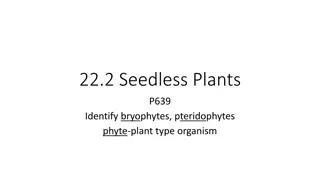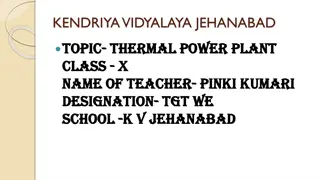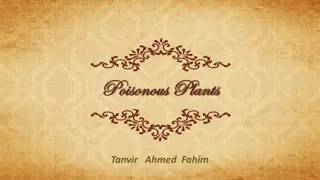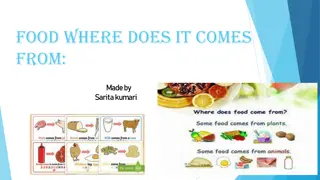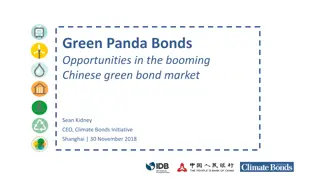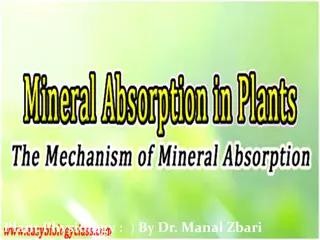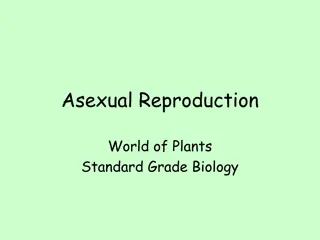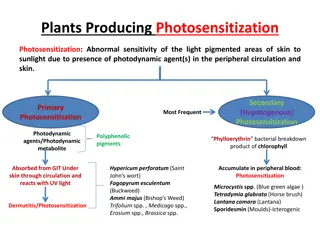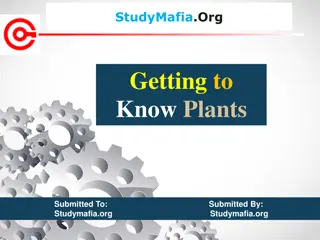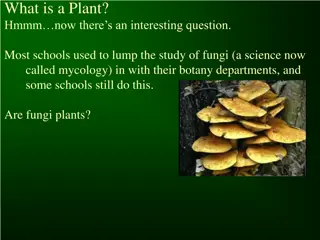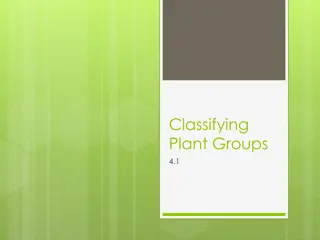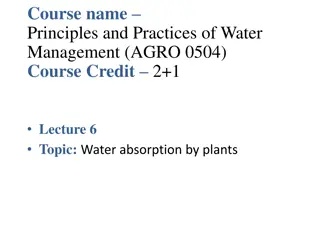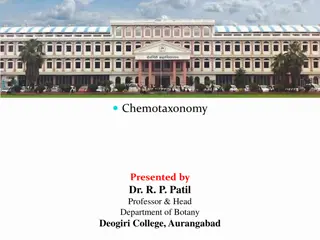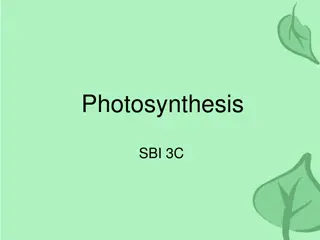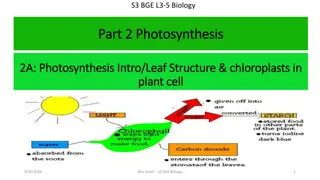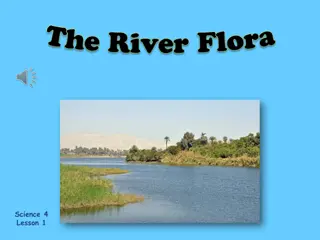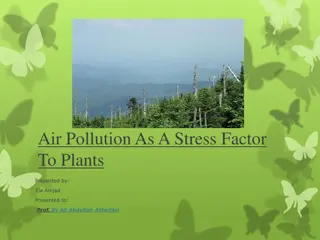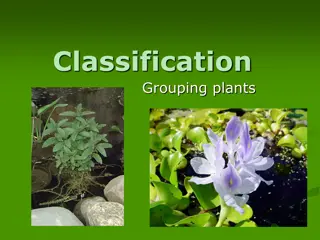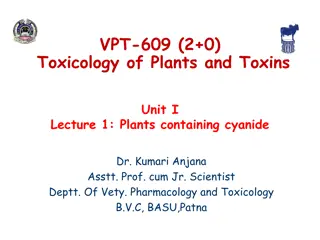Transforming Homes, Empowering Lives Modernize Green Solutions for Sustainable Living
With Modernize Green Solutions, learn what sustainable living is all about. We have provided excellent solar panels, HVAC systems, and customized green house upgrades for thirty years of devoted service. Select us to harness the benefits of renewable energy with our qualified, timely, and affordable
3 views • 1 slides
Green Transition Pillar: Shaping the Green Transition Actions
The Green Transition Pillar outlines actions to support Member States in updating national climate adaptation strategies, uptake of climate-proofing guidance, and promoting tools for climate risk assessments. It encourages the use of green budgeting, green public procurement, and disaster resilience
4 views • 9 slides
Green Infrastructure Framework: Principles and Standards for England
Green Infrastructure is a network of green and blue spaces delivering environmental, economic, health, and social benefits. The framework aims to improve and create quality green infrastructure for all, with an emphasis on access and sustainability. It includes principles, standards, mapping, planni
1 views • 19 slides
Energy Production
Explore different aspects of energy production and efficiency in thermal power plants, water heaters, coal-fired electrical generation plants, and natural gas electrical generation plants. Learn about energy density, mass calculations, overall efficiencies, and specific energy requirements in these
7 views • 57 slides
Creating Trustworthy Green Hotels Around Oceans
This paper examines the impact of green service attributes on consumer trust in sustainable green hotels around oceans. The study focuses on 12 certified green hotels in India and explores how Green Service Encounters influence consumer trust and re-patronage intention. The findings reveal that trus
7 views • 6 slides
green hydrogen market
green hydrogen is used as fuel to provide a sustainable mobility alternative. Fuel cells make vehicles more efficient and quieter; using green hydrogen allows vehicles to travel longer distances with less refueling. The increase in demand for green hydrogen is also due to growing government initiati
1 views • 3 slides
Understanding Green Manuring in Organic Farming: Types, Advantages, and Disadvantages
Green manuring involves incorporating green plant tissues into the soil to enhance fertility and structure. This method includes types like in-situ and green leaf manuring. Desirable qualities of a good green manuring crop are quick growth, nutrient fixation, and deep root systems. Advantages includ
0 views • 7 slides
Understanding Flower Variations in Plants
Explore the diverse world of flowers in plants through examples and explanations of their reproductive parts and processes. Discover how some plants have both male and female flowers, while others have separate sex flowers. Learn about perfect flowers, the female and male parts of a flower, and the
0 views • 12 slides
Archegoniates: Primitive Plants with Unique Reproductive Structures
Archegoniates are a group of primitive plants believed to have originated from ancestral green algae. They possess distinct reproductive structures such as archegonia, which house the egg cell and give rise to the sporophytic generation. Heterospory in archegoniates leads to the formation of microsp
1 views • 15 slides
Importance of Green Fodder in Livestock Production by Dr. Sanjay Kumar
Fodder, essential for livestock like cattle, rabbits, and horses, includes hay, silage, and fresh forage plants. Green fodder provides easily digestible nutrients, essential for animal health and milk production. While concentrates may boost production, green fodder remains economical and vital due
1 views • 11 slides
Understanding Thermal Power Plants: Overview and Operation
Thermal power plants play a crucial role in converting heat energy into electricity for various applications. This article covers the definition, layout, working principle, and components of thermal power plants, highlighting their advantages and top features. From converting heat into mechanical po
0 views • 20 slides
Understanding Transpiration and Gas Exchange in Plants
Transpiration is the evaporation of water from plants, mainly occurring through the leaves' stomata. Plants exchange gases like CO2 and O2 through various parts, without specialized organs. The process aids in photosynthesis, respiration, and cooling, demonstrating the importance of transpiration in
0 views • 22 slides
Understanding Chloroplasts in Plant Cells
Chloroplasts are vital organelles in plant cells responsible for photosynthesis. They contain pigments like chlorophyll, absorbing light energy and converting it into chemical energy. This process is what makes plants green, as chloroplasts reflect green light. The structure of chloroplasts, includi
0 views • 18 slides
Understanding Transgenic Plants and Agrobacterium Tumefaciens in Plant Biotechnology
Creation of transgenic plants involves various methods such as microprojectile DNA-coating, electroporation, and Agrobacterium transformation. Agrobacterium tumefaciens, a soil bacterium, plays a crucial role in inducing crown gall disease in plants by transferring T-DNA from the Ti plasmid. The Ti
1 views • 27 slides
Understanding Seedless Plants: Bryophytes and Pteridophytes
Explore the world of seedless plants through bryophytes and pteridophytes. Learn about the characteristics of green algae, the life cycles of these plants, and how vascular tissue impacts their growth. Discover the limitations and importance of vascular tissue in plants, from the small yet significa
0 views • 8 slides
Understanding Thermal Power Plants in India
Explore the significance of thermal power plants in India, focusing on their generation capacity, coal-based operations, and key players like NTPC. Learn about the principles, layouts, waste management, and power output of these plants. Dive into a list of major thermal power plants across the count
0 views • 21 slides
Understanding Poisonous Plants and Their Effects on Humans
Poisonous plants can have deleterious effects on individuals, leading to severe consequences and even death if not managed properly. These plants produce toxins that interfere with the body's essential functions, ultimately causing impairment and potential fatality. Recognizing the grades of poisoni
0 views • 11 slides
Understanding Food Sources: Plants and Animals Explained
Food is essential for nourishing our bodies, and it comes from either plants or animals. Plants provide fruits, vegetables, grains, and more, while animals offer products like meat, milk, and eggs. Different parts of plants, such as roots, stems, and leaves, are consumed as food. Animals have varied
0 views • 11 slides
Understanding Green Growth Frameworks and Performance
Green growth frameworks aim to measure and track a country's progress in achieving sustainability targets like the Sustainable Development Goals and the Paris Climate Agreement. These frameworks provide a conceptual understanding of the interlinkages between different dimensions and indicators of gr
0 views • 16 slides
Advancing Sustainable Development through Green Enterprises in the Caribbean
Caribbean Green Economy Action Learning Group focuses on promoting a Green Economy in the Caribbean region for sustainable development. The key principles include economic viability, social inclusion, environmental sustainability, resilience, and good governance. The program emphasizes the importanc
0 views • 9 slides
Exploring Growth and Opportunities in the Green Bond Markets
Delve into the burgeoning Chinese green bond market with insights on green bonds growth, sector allocations, Latin American issuance trends, sustainable investment needs in Latin America, China's green bond growth, and global green bond market size comparisons. Discover the significance of Green Pan
0 views • 14 slides
Green Valley Green Committee: Keeping Our Neighborhood Clean and Green
The Green Valley Green Committee is dedicated to maintaining a clean and green neighborhood. Their mission involves removing trash and debris, educating the community about waste prevention, restoring natural areas, and organizing clean-up events. Through programs like Earth Day Clean-Up and Green V
0 views • 9 slides
Mineral Absorption in Plants: Mechanisms and Types
Plants absorb minerals from the soil as ions through the roots, with the process of mineral absorption being distinct from water absorption. Mineral absorption in plants can occur through passive or active methods, each involving different mechanisms and energy requirements. Passive absorption is a
0 views • 14 slides
Asexual Reproduction in Plants: Methods and Examples
Asexual reproduction in plants, also known as vegetative propagation, involves various methods such as tubers, bulbs, and runners. It allows plants to reproduce without the involvement of sex cells and fertilization, resulting in genetically identical offspring. Artificial propagation techniques lik
0 views • 11 slides
Understanding Photosensitization in Plants: Causes and Toxicity
Photosensitization in plants can lead to abnormal skin sensitivity to sunlight, caused by the presence of photodynamic agents in the skin and peripheral circulation. Primary and secondary photosensitization are common, with various plants and toxins contributing to liver damage and biliary occlusion
0 views • 12 slides
Exploring the World of Plants: An Overview
Plants play a vital role in sustaining life on Earth by producing food and oxygen. This comprehensive guide delves into the diverse types of plants, such as herbs, shrubs, trees, creepers, and climbers. It also discusses the essential components of plants, like leaves, transpiration, and photosynthe
0 views • 20 slides
A Closer Look at Plants and Their Importance in Our Ecosystem
Plants play a vital role in our ecosystem, not only through photosynthesis but also in regulating atmospheric gases like oxygen and carbon dioxide. Understanding the definition of plants, from green algae to flowering plants, is essential. By studying plants, we uncover their critical contribution t
0 views • 12 slides
Understanding Plant Classification and Characteristics
Discover the classification of plants based on their structures and characteristics, including vascular vs. nonvascular plants, seed plants vs. seedless plants, and the definitions of angiosperms, gymnosperms, dicots, and monocots. Learn about the history of plant classification and how plants are g
0 views • 27 slides
Water Absorption by Plants: Mechanisms and Adaptation Strategies
Understanding water absorption by plants is crucial for effective water management in agriculture. Plants absorb water through active and passive methods, driven by osmotic and non-osmotic processes. Root hairs play a significant role in facilitating water uptake, with mechanisms such as osmotic act
0 views • 26 slides
Beware of Pests and Diseases on Plants - Protect Your Home Garden
Pests and diseases can easily hide on plants, seeds, fruits, vegetables, and flowers, posing a threat to your home garden. Bringing infected plants home can lead to widespread infestations and damage. It's crucial to be vigilant and avoid importing potentially contaminated greenery. Stay informed, i
0 views • 4 slides
Understanding Chemotaxonomy: Classification of Plants Based on Chemical Constituents
Chemotaxonomy, presented by Dr. R. P. Patil, explores the scientific investigation of the chemical characters in plants for taxonomy and phylogeny studies. It involves classifying plants based on their chemical constituents and molecular characteristics. Principles, methods, and importance of chemot
0 views • 24 slides
Understanding Photosynthesis: The Process of Energy Conversion in Plants
Photosynthesis is a vital process where plants, algae, and cyanobacteria convert light energy from the sun into chemical energy in the form of glucose. This energy conversion involves the absorption of light by chlorophyll molecules in chloroplasts, leading to the generation of ATP and the formation
0 views • 12 slides
Understanding Photosynthesis: Process and Importance in Plants
Photosynthesis is a vital process in green plants where they use carbon dioxide and water to produce sugar and oxygen, facilitated by chloroplasts. Limiting factors such as light, water, and temperature can impact photosynthesis rate. Green plants are producers that make their own food through photo
0 views • 17 slides
Understanding Photosynthesis: The Importance and Mechanism
Photosynthesis is a vital process in plants, utilizing sunlight to produce energy for life on Earth. It occurs in chloroplasts, primarily in leaves, where chlorophyll captures light for the process. The green pigment in plants is due to chloroplasts containing photosynthetic pigments. This process i
0 views • 41 slides
Diversity of Plants in Rivers and Streams
In rivers and streams, a variety of plants play essential roles by providing shelter, food, and oxygen to animals. From white poplar to water lilies, different plants thrive along riverbanks and in water bodies, contributing to the ecosystem's health and balance. Aquatic plants like water lettuce an
0 views • 6 slides
Understanding Air Pollution Stress on Plants
The impact of air pollution on plants is a significant concern, affecting their physiology and overall health. Various air pollutants, such as sulfur dioxide, ozone, and nitrogen compounds, have been identified as phytotoxic agents, leading to severe or subtle effects on plant life. Detecting the ef
0 views • 21 slides
Plant Classification and Reproduction Overview
Plants are categorized into four groups: Mosses, Ferns, Conifers, and Flowering Plants. Mosses reproduce by spores and lack roots or xylem vessels. Ferns reproduce via spores, while conifers reproduce with seeds found in cones and have needle-shaped leaves. Flowering plants reproduce using seeds fou
0 views • 8 slides
Going Green: Transforming Healthcare Offices for a Sustainable Future
Explore "Going Green: Ten Weeks to a Healthier Climate & Healthcare Office" by Dr. Todd L. Sack, offering invaluable insights on environmental sustainability in healthcare. Discover the benefits, practical steps, and tools like "My Green Doctor" to initiate and maintain greener practices in medical
0 views • 11 slides
Understanding Cyanogenic Plants and Cyanide Poisoning in Animals
This lecture introduces the toxicology of plants containing cyanide, focusing on factors affecting cyanide poisoning, cyanogenic plants, mechanisms of toxicosis, clinical signs, post-mortem lesions, diagnosis, treatment, and prevention. It discusses species variations in susceptibility, plant growth
0 views • 22 slides
Understanding Monocot Plants: Features and Families
Monocotyledon plants, a significant group of flowering plants, have unique characteristics such as adventitious roots, parallel-veined leaves, and flowers with parts in sets of three or four. The Poaceae family, including economically important grasses, and the Cyperaceae family, known as sedges, ar
0 views • 7 slides






